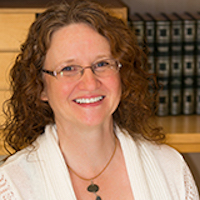Lynn Dare
Applied Psychology
Welcome!
About me: For a long time, I was a stay at home mom. As my children grew older, I returned to school and began a career in research and evaluation. Currently I’m working towards a doctoral degree in applied educational psychology under the supervision of Dr. Elizabeth Nowicki.
About my research: Through my doctoral research, I'm looking at beliefs about educational acceleration for high-ability children.
About acceleration: read an article by the American Psychological Association about acceleration for high-ability children.
Acknowledgement: My research is funded in part through a Social Sciences and Humanities Research Council (SSHRC) Doctoral Fellowship.
Research
- Concurrent enrolment: it’s a good thing
- Parents’ Experiences with grade-based acceleration (article published in AJGE)
- Students’ Views on Acceleration

Publications
Kanevsky, L. & Dare, L. (2018). Acceleration Policies and Practices in Canada. European Council For High Ability News, 32(2), 9-11.
Dare, L. & Nowicki, E. (2018). Beliefs About Educational Acceleration: Students in Inclusive Classes Conceptualize Benefits, Feelings, and Barriers. Journal of Educational Research. doi: 10.1080/00220671.2018.1440368
Dare, L. & Nowicki, E. (2018). Strategies for inclusion: Learning from students’ perspectives on acceleration in inclusive education. Teaching and Teacher Education, 69, 243-252. https://doi.org/10.1016/j.tate.2017.10.017
Dare, A.W., Dare, L., & Nowicki, E.A. (2017). Concurrent enrollment: Comparing how educators and students categorize students’ motivations. Social Psychology of Education.doi: 10.1007/s11218-016-9364-8.
Stack-Cutler, H., Schnirer, L., & Dare, L. (2017). Engaging Populations Living with Vulnerable Conditions in Community-Based Research: A Concept Mapping Approach to Understanding Positive Practices. Journal of Community Psychology. doi: 10.1002/jcop.21880
Dare, L., Nowicki, E.A., & Felimban, H. (2016). Saudi children’s thoughts on the inclusion of classmates with learning difficulties. International Journal of Inclusive Education. Advance online publication. doi: 10.1080/13603116.2016.1218948
Dare, L., Smith, S., & Nowicki, E. (2016). Parents’ experiences with their children’s grade-based acceleration: Struggles, successes, and subsequent needs. Australasian Journal of Gifted Education 25(2), 6-21 . doi: 10.21505/ajge.2016.0012
Kim, D.J., Ortenzio, F., Kim, T.J., Dare, L., Frank, C., Tobin, J., Krueger, J.G., Kost, R.G., A Lowes, M.A. (2016). Patients with psoriasis and personalised trade-offs in treatment decisions: Lessons learned from focus groups. JAMA Dermatology, 152(6), 720-722. doi: 10.1001/jamadermatol.2016.0501
Felimban, H., Nowicki, E.A., Dare, L., &. Brown, J. (2016). A comparison of Saudi and Canadian children’s knowledge of the causes of learning difficulties. British Journal of Special Education, 43(4), 394–415. doi: 10.1111/1467-8578.12153
Dare, L. & Nowicki, E.A. (2015). Conceptualizing concurrent enrollment: Why high-achieving students go for it. Gifted Child Quarterly, 59(4), 249-264. doi: 10.1177/0016986215597749
Dare, L. & Nowicki, E.A. (2015). Twice-exceptionality: Parents’ perspectives on 2e identification. Roeper Review, 37(4), 208-218. doi: 10.1080/02783193.2015.1077911
Dare, L. & Nowicki, E.A. (2015). A Puzzling Paradox: Twice-exceptional students hidden in our classrooms.Education Canada, 55(3), 49-51.
Dare, L., Nowicki, E., & Smith, S. R. (2018). On deciding to accelerate: High-Ability Students Identify Key Considerations. Manuscript submitted for publication.
Coyne-Foresi, M., Crooks, C., Chiodo, D., Nowicki, E.A., & Dare, L. (2018). A mixed methods exploration of benefits for youth mentors in an indigenous high school peer mentoring program. Manuscript submitted for publication.
Dare, L. & Nowicki, E.A. (2018). “The road less travelled”: What it means to experience grade-level acceleration. Manuscript submitted for publication.


